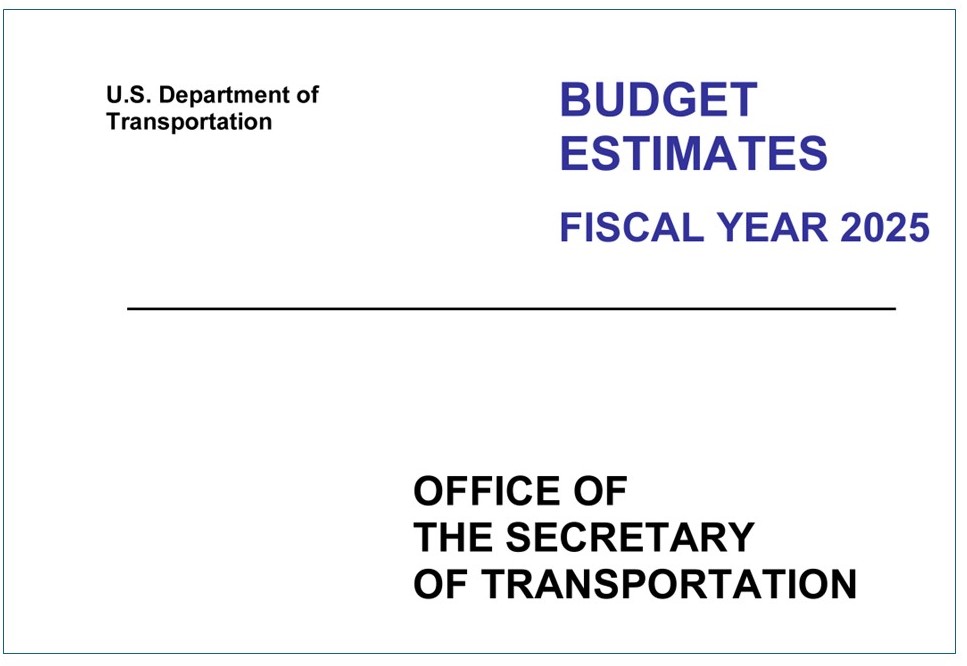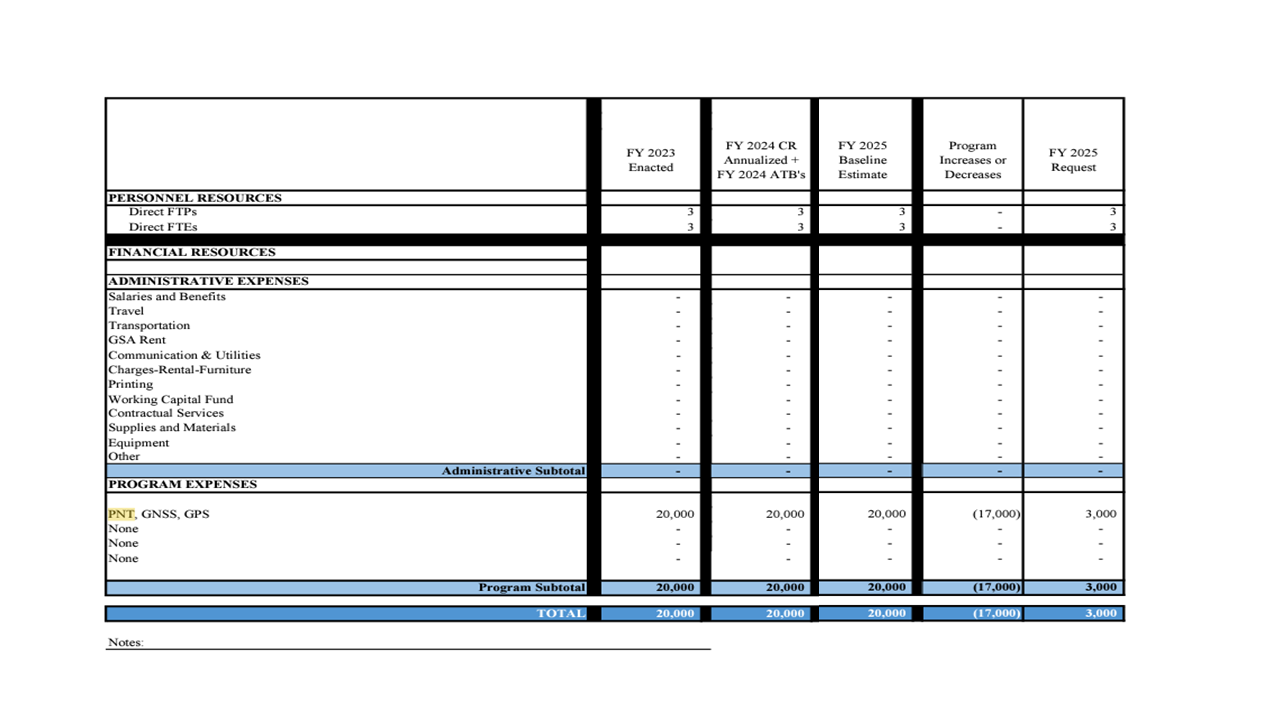Image: Shutterstock
What’s New: The President’s budget request sent to Congress. It asks for $1.5B for Space Force in order to make military space-based PNT more resilient. It also seeks to reduce the Department of Transportation’s (DOT) budget for PNT activities from $20M last year to $3M in 2025. DOT is responsible for all non-military PNT issues within the federal government.
Why It’s Important:
- 99.99% of PNT users in the U.S. are not military and PNT is essential to virtually every technology and infrastructure. The Federal Radio Navigation Plan says our National PNT Service falls short of where it needs to be in a host of ways:
- Assured, real-time PNT in physically impeded environments (e.g., indoors, urban canyons, underground facilities);
- Sufficient accuracy and integrity in electromagnetically impeded environments including operations during spoofing, jamming, and natural and unintentional interference;
- Higher accuracy with high integrity; timely notification/alarming when PNT performance is degraded or misleading, especially for safety-of-life applications or to avoid collateral damage;
- Ensuring PNT services, including supporting Information Technology (IT) infrastructure and supply chain are protected from cyber threats;
- Ability to accurately locate sources of intentional and unintentional interference in a timely manner; and
- Insufficient resilience and survivability when GPS services are unavailable or untrusted.
- DOD seems to be putting all their PNT eggs in one basket. Haven’t we seen a lot in the press about anti-satellite weapons? Didn’t Russia launch one just this week?
- DOD needs to be able to train, maintain, and equip here at home. They will need the Defense Industrial Base and the US economy to be working efficiently in the homeland in order to defend the nation.
What Else to Know:
- The President’s budget also requests repeal of the National Timing Resilience and Security Act of 2018. The Act calls for DOT to establish a terrestrial timing system to backup GPS services. This same request has been made for the last four budget years.
- The DOT PNT office represents the 99.99% of Americans who need PNT but are not military. They have three people assigned. How many folks do you suppose are working PNT issues in DOD?

Space Officials Outline Key Investments Needed to Ensure U.S. Maintains Edge
In testimony before a Senate Armed Services subcommittee, John D. Hill, deputy assistant secretary of defense for space and missile defense, outlined key investments in DOD’s budget request for fiscal year 2025 needed to keep pace with challengers to the U.S. in the space-warfare domain.
“We are clearly in a time of rapid change in the space strategic environment,” Hill told the Strategic Forces Subcommittee. “One that does not favor the slow or those resistant to change.”

Positioning, Navigation and Timing (PNT) and Spectrum Management Program:
DOT co-leads the federal role in PNT with the Department of Defense (DOD) by coordinating civil sector PNT requirements and representing the civil (non-defense) departments and agencies in the development, acquisition, management, and operations of the Global Positioning System (GPS). The Secretary of Transportation is assigned this role by Space Policy Directive (SPD-7, U.S. Space-Based Positioning, Navigation, and Timing Policy). The Secretary’s role also includes ensuring that GPS public safety services meet or exceed international performance standards and promoting PNT resiliency for transportation safety. FY 2025 projects will support implementation of SPD-7, as well as the goals of EO 13905, Strengthening National Resilience Through Responsible Use of PNT Services, which requires the owners and operators of critical infrastructure within the Transportation Systems Sector to sustain resilient PNT operations in the absence, disruption, or manipulation of space-based PNT and/or develop methods that utilize Complementary PNT services.
Radio frequency spectrum is critical to the safe and efficient use of the national transportation system by the traveling public, the freight community, other commercial and private entities, as well as other federal agencies using the roads, rails, waterways, and airspace within the United States.
FY 2024 Anticipated Accomplishments:
- Implementing recommendations from the December 2022 GAO Report entitled “GPS Disruptions – DOT Could Improve Efforts to Identify Interference Incidents and Strengthen Resilience”.
- Implementing a real-time GNSS performance monitoring and interference detection capability and ability to present information through a standard centralized common operational picture.
- Executing EO 13905 Vulnerability Assessment and Testing to support PNT Profile development and implementation of the National PNT R&D Plan objectives. Conducting requirements engineering efforts to address out-of-band data and in-band GPS Signal Authentication techniques in conjunction with DOD and DHS.
- Executing tasks in the DOT Complementary PNT Action Plan to facilitate critical infrastructure adoption of Complementary PNT technologies.
- Completion of a DOT Spectrum Audit required by Section 27003 of the Bipartisan Infrastructure Law which required DOT and the National Telecommunications and Information Administration (NTIA) to conduct an audit of spectrum allocated or assigned for US DOT use.



